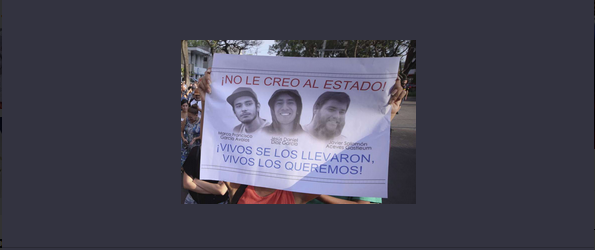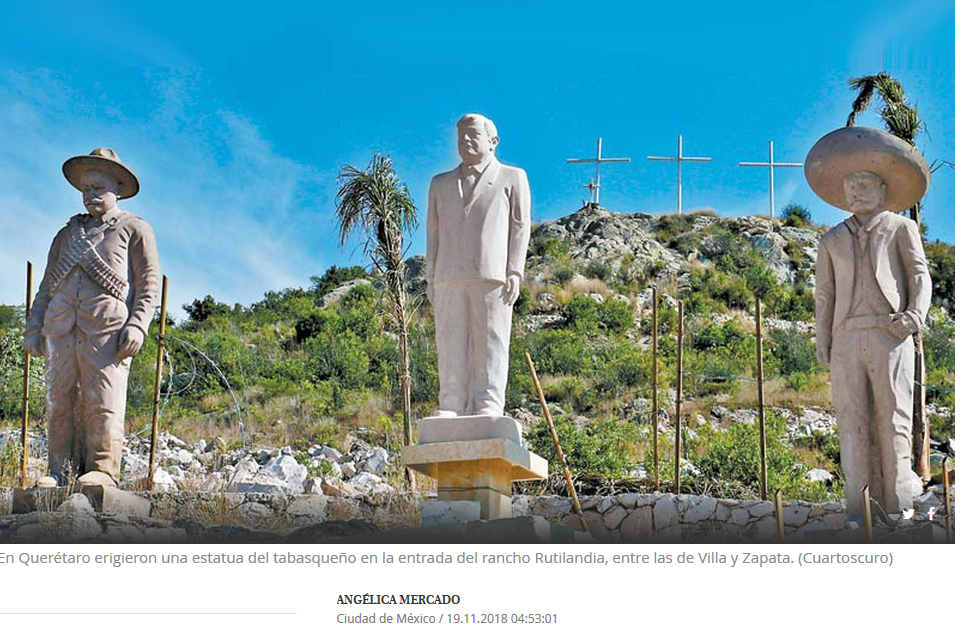AMLO's austerity plan includes 50% pay cut for lawmakers
Thursday, July 12, 2018
President's salary to be halved as well; many benefits will be eliminated
President-elect Andrés Manuel López Obrador has begun outlining a strict austerity plan that Mexico’s next government intends to implement when it takes office later this year.
Slashing the upper levels of government bureaucracy by 50%, eliminating undersecretaries as well as state branches of federal offices and some parliamentary committees, reducing politicians’ salaries and cutting a range of other government expenses are all on the incoming administration’s agenda.
After meeting yesterday with a group of lawmakers from the three parties that make up the coalition that swept him to a landslide victory on July 1, López Obrador told a press conference that the next Congress will propose a 50% reduction to the wages paid to federal deputies and senators.
If approved, members of the lower house in the next Congress will earn a gross monthly salary of 37,336 pesos (US $1,983) while senators will be paid 58,700 pesos (US $3,120).
López Obrador also said that the gross salary he will receive as president will be halved from its current monthly level of 209,135 pesos (US $11,090) and that perks and benefits for all politicians — such as health insurance covering major medical expenses — will be eliminated.
The president-elect said that pensions for former presidents are also on the chopping block because having worked in the public service they are already entitled to ISSTE state workers’ pensions.
In addition, if they are over 65, they can claim old-age pensions, which López Obrador has said he will double.
The political veteran, who made stamping out corruption central to his bid for the presidency, said that whether the Morena party he leads decides to accept the 1.5 billion pesos (US $80 million) it will be entitled to next year due to the high percentage of votes it won on July 1 will be subject to analysis.
López Obrador also presented a plan to the lawmakers elected under his Together We Will Make History coalition entitled Considerations for deputies and senators.
The president-elect said that he and his team believe that the changes proposed in the plan “will be sufficient to fulfill [the government’s] commitments and to carry out the . . . transformation of the country.”
The Morena-led coalition will have a majority in both houses of federal Congress, although it will likely need to negotiate with opposition parties in order to pass constitutional reforms that require two-thirds support.
The Considerations document, which serves to set priorities for the government’s legislative agenda and instruct Congress, proposes 12 “possible reforms to the legal framework” that López Obrador read out at yesterday’s press conference. They are:
- Changing article 127 of the constitution, which currently stipulates that no public official can earn a higher salary than the president.
- Establishing a federal Secretariat of Public Security.
- Eliminating political immunity known as the fuero and other privileges currently afforded to government officials.
- Including corruption, petroleum theft and electoral fraud on the list of serious crimes for which there is no right to bail.
- Transferring responsibility for preparing the federal budget to the Secretariat of Finance.
- Incorporating the Estado Mayor Presidencial — the institution charged with protecting the president of Mexico — into the Secretariat of Defense.
- Overturning the recent decree which privatizes water.
- Modifying or repealing the 2013 educational reform.
- Establishing the right to free, public education at all school levels in article 3 of the constitution.
- Establishing a legally-binding consultation mechanism that enables the presidential term to be revoked.
- Reviewing the need to increase the minimum salary in the northern border region.
- Carrying out the changes to laws, regulations, decrees and agreements to adjust the administrative structure of the government in accordance with the federal austerity plan.
Meanwhile:
Watch: Fierce Gun Battle Erupts Between Mexican Troops And Cartel Gunmen Near Texas Border






